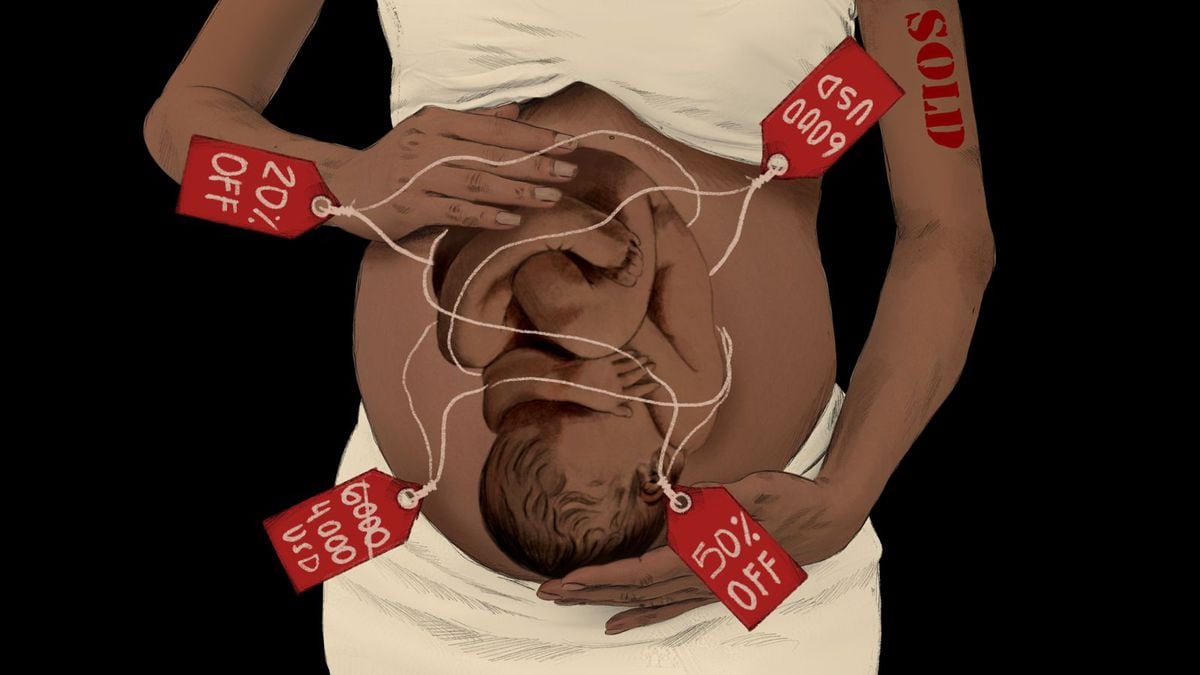Paloma Valencia, María Fernanda Carrascal, María del Mar Pizarro and María José Pizarro, senators from different political parties.
The new Congress of Colombia is historic for several reasons.
One of these is that, for the first time, women occupy more than 30% of the seats.
Senators and representatives to the House of different political parties represent an important force, with a weight that will be decisive for the debates that will pass through the Capitol in the next four years.
To complete the record, they now expect the incoming government to keep its word and be equal.
Only then, some agree, will women's problems finally begin to be a central issue on the country's agenda.
Although some believe that more is missing.
The senator of the Democratic Center Paloma Valencia is one of them.
She says that Colombia will demonstrate its willingness to achieve equality between men and women until Colombia has a woman as president.
But it is too soon to talk about the next presidential elections and before the date on which the senator hopes to arrive at the Casa de Nariño arrives, many things will happen.
The Government of Gustavo Petro will have a Congress with the presence of women as never seen before and although not all, as in the case of Paloma Valencia, will be on his side, it is historic.
The participation of women in the Senate and Chamber will now be 28.8%, 9.1% more than in the previous legislature.
Of a total of 295 seats, 85 will be occupied by women, which means that there will be 30 more congressmen.
The Congress will be filled with new voices that arrive stomping.
One of them is that of María Fernanda Carrascal, representative to the Chamber for the Historical Pact.
On July 20, the day of the installation of Congress, she held up a sign that said: "Hey Iván, the right to abortion does exist."
She did so in reference to the statements made by the president, Iván Duque, in which he denies the right to abortion in Colombia.
The interruption of pregnancy will be a key issue in this legislature after the Constitutional Court decriminalized it, last February, until the 24th week. After the sentence, it is up to Congress to make legislative decisions to regulate access to safe abortion, as the Court recommended it.
Some congresswomen like Carrascal and María José Pizarro assure that this issue is not only on their gender agenda.
It is a public health issue, which deserves priority attention.
“We are going to move forward and carry out the regulation of abortion.
Congress cannot continue to evade the provisions of the Court, they are on the public agenda and it is a central issue.
It must be discussed”, says Pizarro.
The voice of women in Congress is not homogeneous, not even between politicians of the same party.
María del Mar Pizarro (sister of María José Pizarro) has just arrived at the House of Representatives, also with the Historical Pact, but she confesses that she is not in favor of abiding by the Court's decision regarding the interruption of pregnancy.
She shares the opinion with representatives of the opposition, of which El Centro Democrático is a part.
As a member of this party, Senator Valencia is also opposed to abortion and she affirms that she does not consider herself a feminist "in the leftist sense of the word."
Valencia assures, however, that she has a very broad gender agenda and that she has managed to reach agreements with her colleagues from other parties in the previous legislature on issues of great importance to women such as the Femicide Law, which seeks to eradicate gender-based violence.
Quota law in Congress
The number of women who will be present in Congress was a pending account, since in Colombia there is a Quota Law that requires that 30% of senior public positions be held by women.
However, this has been repeatedly breached, especially in parliament, where they have always been underrepresented.
That is why when the Law is complied with for the first time and the threshold of 30% of women in Congress is reached, Colombia marks a milestone, which has been highlighted by UN Women and by the Presidential Council for Women's Equality.
”It is the highest percentage of women congressmen in history, which means that the talent, looks and abilities of half the population are incorporated to a greater extent.
It means that the policy will be a little more like reality, although there is still a long way to go to reach the necessary parity,” said the representative of UN Women Colombia, Bibiana Aído.
For its part, the Presidential Council for Women's Equity highlighted that four years ago for every woman in Congress there were four men, while for this period there will be one woman for every two men.
This time, women added 4,604,713 votes, while in 2018 the figure was almost half, 2,521,497.
The gender agenda of congresswomen
Senator Maria José Pizarro is happy to see Congress with more female voices.
"This is a giant challenge," she says in a phone call.
But there is no time to lose.
In the coming weeks, Pizarro is going to present the Parity Law and a comprehensive health care package for women who are going to be mothers.
The law, known as the 1,000 Days Law, aims to guarantee the care of women during pregnancy and the first months of their children's lives.
In addition, within her gender agenda, she also intends to present an indigenous midwifery law like the one that exists for the Afro community and a policy and sanction law against digital violence suffered by women on social networks.
The congresswoman recognizes that the representation of women who have a gender agenda within their programs is not enough.
“With this new Congress I hope we can fight bigger battles.
My goal is that all bills have a gender component, "says Pizarro, who will also seek to help women to undertake and give benefits to companies that hire more workers.
The opposition, led by Paloma Valencia, has within its gender agenda the Heads of Household Law, which seeks to provide care and employment to women, and the Law of the State with you, which it carried out in the previous legislature to help women Colombian women with their day-to-day tasks through various programs offered by the Government.
For her part, María Fernanda Carrascal will focus on fighting from Congress for the sexual and reproductive rights of women and trans women and will also seek to promote a law on parity.
Maria del Mar Pizarro seeks to make bills to help women to undertake, as she did with her company.
With this historic advance in terms of the number of women in Congress, the country is above the world average, which places the number of women at 25.5% in all parliaments in the world.
In Latin America, this percentage is 32.4%, so all the congresswomen agree that there is still much to do.
Subscribe here
to the EL PAÍS newsletter on Colombia and receive all the key information on the country's current affairs.









/cloudfront-eu-central-1.images.arcpublishing.com/prisa/2XWZK2SNNVHNTOU6DYROGV3XVI.jpg)

/cloudfront-eu-central-1.images.arcpublishing.com/prisa/KMEYMJKESBAZBE4MRBAM4TGHIQ.jpg)


/cloudfront-eu-central-1.images.arcpublishing.com/prisa/EXJQILQR5QI7OMVRTERD7AEZAU.jpg)
